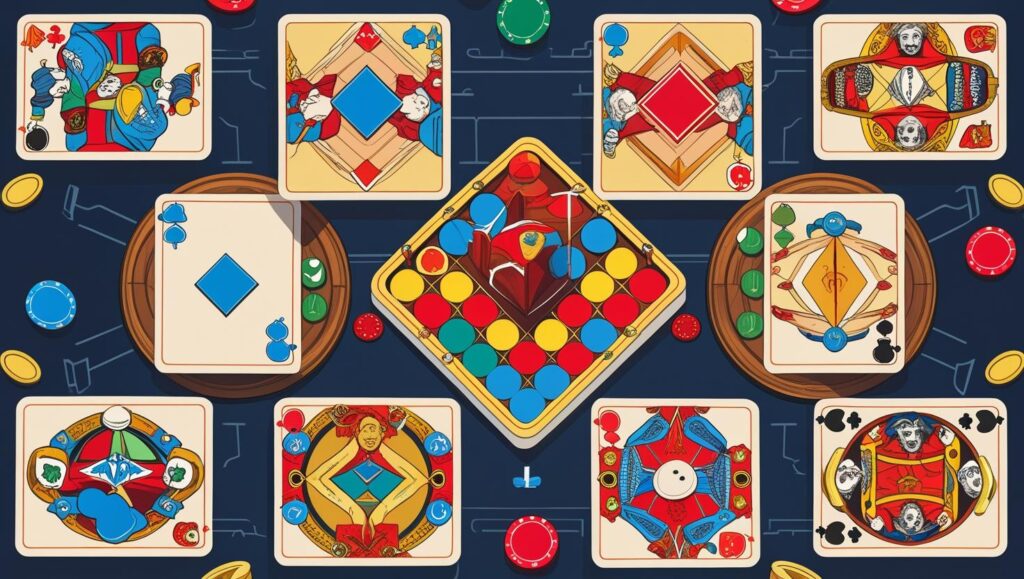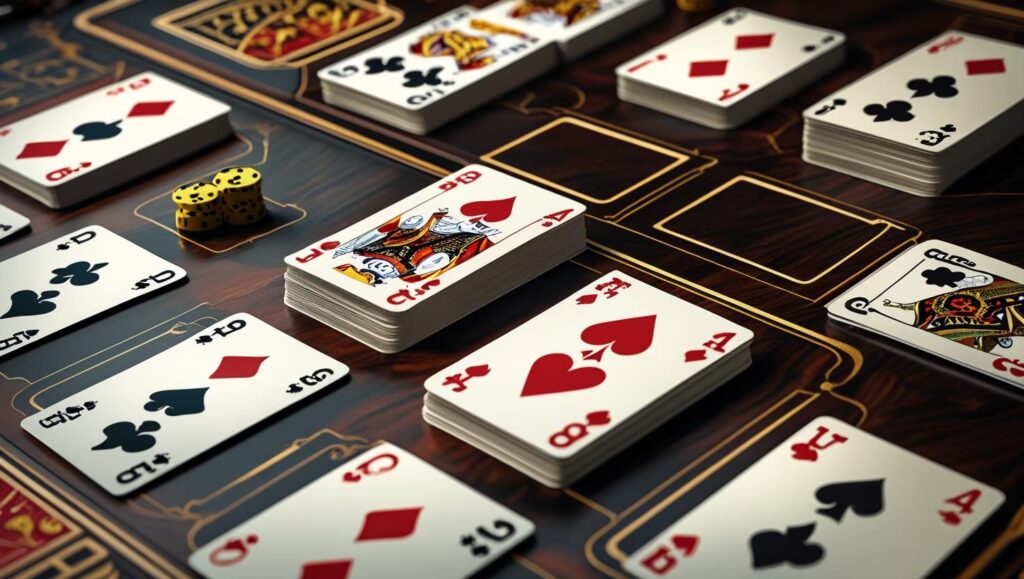Free Cell Card Game: 7 Motivating Factors for Strategic Thinking and Mental Agility Mastery
The modest Free Cell card game has endured in a period when complicated multiplayer games and highly competitive esports rule. FreeCell is still among the most psychologically exciting solitaire-style games ever produced, even if flashier designs sometimes take center stage. Among single-player games, its exquisite simplicity, strategic depth, and certain solvability set it apart.

We will discuss what makes Free Cell Card Game unique, why it still enthralls millions of players, and how learning it might unexpectedly improve cognitive ability, focus, and decision-making in this extensive blog article. FreeCell offers much more than just enjoyment; it’s a disciplined mental workout for you independent of your degree of play or analytical ability improvement.
Describe the Free Cell Card Game here
The solitaire-based card game Standard 52-card deck Free Cell Card Game is based on Nearly every Free Cell Card Game is winnable unlike classic patience games like Klondike. Both logical thinkers and puzzle aficionados enjoy the game since it calls for foresight and ability instead of chance.

The arrangement consists in:
Four open cells—the “Free Cell Card Game”—could
Four foundation piles—to construct every suit in increasing sequence—then
Eight tableau columns where most of the gameplay takes place.
Starting with Aces and working through Kings, ordered by suit, the goal is basic: move all cards to the foundation piles. Still, the strategic road to this objective can be rather difficult and quite fulfilling.
7 Reasons You Should Start Playing Free Cell Card Game Right Now
1. Improves Strategic Thinking
Free Cell Card Game calls on careful planning and deliberate sequencing rather than happenstance. Every action has consequences that sweep across the pitch and force players to consider several possibilities before making a commitment. This fosters sophisticated ideas that fit quite nicely for practical decision-making.
2. Boosts Concentration and Memory
FreeCell tests your working memory, unlike games depending on reflexes. You have to recall card positions, predict future motions, and picture possible runs-through. This increases your brain’s capacity for focused attention and memory retention under duress.
3. Encourages Discipline and Patience
Every FreeCell game is a logical, controlled exercise. Usually, running in without a strategy results in disaster. Players thus grow in the mental discipline and patience required for effective problem-solving.
4. Offers assured wins (with effort).
Most FreeCell deals are solvable with the correct strategy unlike classic patience. Every win feels earned and fulfilling because of that natural surety of success—because it is. It also supports analytical resilience and tenacity.
5. Simple Learning, Difficult Mastery
In minutes, the basic physics of FreeCell are simple to understand; nevertheless, mastery of them requires commitment. Though the learning curve is flat, it is challenging and makes the game endlessly fascinating without terrifying newbies.
6. Perfect for either short or extended play sessions
FreeCell adjusts to your time whether your allotted five minutes or one hour. It’s ideal for short vacations or for longer strategic immersion sessions to provide rapid cognitive boosts.
7. No Frustrations, No Cost, No Advertisers
Completely free of cost, FreeCell is extensively available on Windows, web browsers, and mobile apps. Many variants offer a continuous and easily available gaming experience by being ad-free and devoid of internet access requirements.
Detailed Guide on Playing FreeCell Step-by- Step
Here’s a methodical guide to help individuals returning after a long break or fresh to FreeCell get going:
First step: Recognise the layout; free cells (top left) are card temporary holding areas.
Foundations: Where you create suits from Ace to King from top right.
Main playing area with shuffled cards is Tableau (middle columns).
Second step: Start with freeing acces.
Start moving Aces to the foundation while looking around the tableau. Early release frees greater strategic options and starts the process of suit-building.
Third step: apply FreeCells. shrewdly
Free cells are not for long-term storage. Use them sparingly when absolutely essential; try to free them fast to maintain your alternatives.
The fourth step is create descending, alternating patterns.
Create sequences in the tableau in reverse order and alternate colors—that is, red 9 on black 10. This helps you to develop paths for more advanced strategic plays and move stacks effectively.
Step 5: Keep Columns Open.
Moving whole stacks is made possible by an empty tableau column. Reshuffling your cards into more favourable configurations depends mostly on this approach.
Step 6: Always Ahead Thinking
Steer clear of hasty actions. Think about how moving any card may effect your access to hidden cards or whole sequences. Crucially important are foresight and vision.
Background Information & Legacies in History
FreeCell first gained relatively popularity early in the 1990s when it featured Windows Entertainment Pack from Microsoft. Because of its more clever design and continuous winnability, FreeCell rapidly developed a cult following unlike other card games packaged with Windows.
Since then, it has been of the most often used logical-based card games available worldwide. Countless web versions, mobile apps, and even competitive rankings depending on move efficiency and completion time have been inspired by it.
Typical Frequencies Regarding the FreeCell Card Game
Are every FreeCell game victories possible?
Almost every FreeCell game is winable. Actually, just one of the original 32,000 deals in the Microsoft version proved unworkable.
Does playing depend on my ability in reasoning or arithmetic?
Not especially. Though reason is important, the game teaches you planning and strategy as you play. All skill levels can access it.
Can I play mobile FreeCell?
Indeed. Android, iOS, and browser-based systems all have FreeCell accessible. For the greatest experience, seek for apps with simple UI and few advertisements.
Does a competitive FreeCell league or tournament exist?
Exactly. On certain sites, timed challenges and leaderboards abound. Competitive play is mostly measured in speed and efficiency.
From other patience games what distinguishes FreeCell?
FreeCell stresses reasoning over chance, more open decision-making, and almost perfect solvability unlike Klondike or Spider Solitaire.
Final Notes
Masterwork in controlled intricacy is FreeCell. It’s a timeless illustration of how a basic set of guidelines applied within the correct framework can produce unlimited variation, challenge, and fun. It’s a mental gym not merely a game.
FreeCell is among the most easily accessible and satisfying choices available—free of expense, free of turmoil, and rich in mental rewards—if you’re wanting to strengthen attention, improve cognitive function, or just unwind with a game that rewards brains and strategy. It’s time to play wisely.
10 Top Best Games That Will Enhance Your Gaming Experience Right Away
